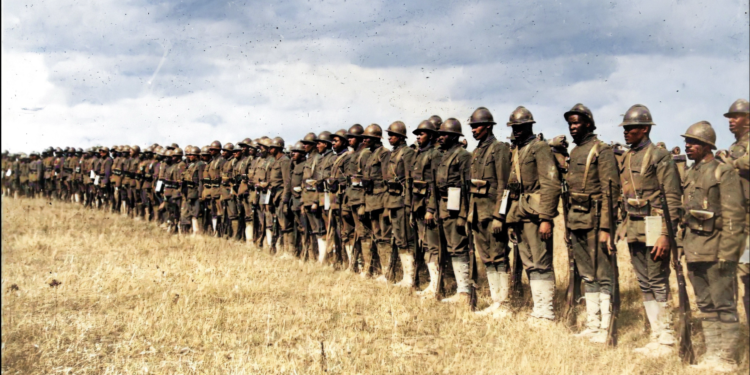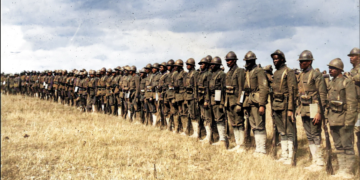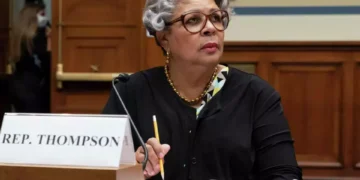September 3, 2025 Story by: Editor
The 369th Infantry Regiment, known popularly as the Harlem Hellfighters, have been formally awarded the prestigious Congressional Gold Medal—one of the highest civilian honors in the United States.
This honor was bestowed upon them through H.R.3642 – Harlem Hellfighters Congressional Gold Medal Act, which was signed into law and culminated in the medal being awarded on August 25, 2021.
“Today, more than a century later, we say their names,” said Congresswoman Joyce Beatty (D-OH). “We honor their sacrifice, we lift up their story as part of a greater American story — a story written of Black heroes. Today, we say ‘Harlem Hellfighters,’ we remember you, we honor you, we thank you, and we will never let this nation forget you.”
Speaker Mike Johnson (R-LA), United States Defense Secretary Hegseth hosted a gold medal ceremony honoring the “Harlem Hellfighters,” an African American infantry regiment in the New York National Guard known for their service in WWI.
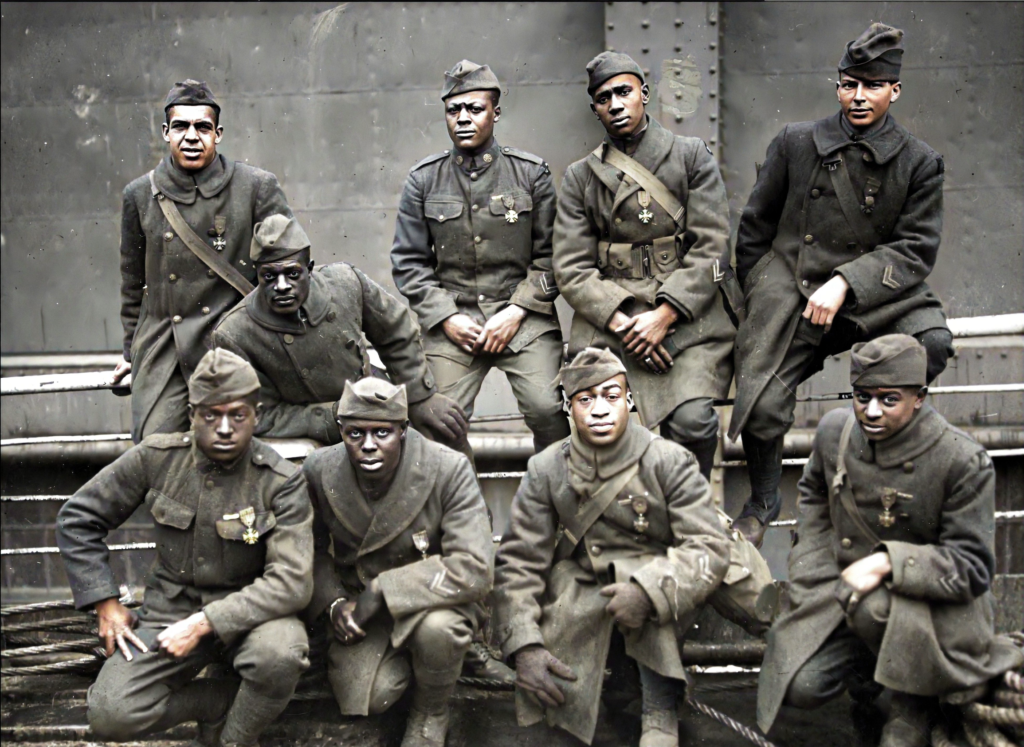
Photo caption: Decorated soldiers of the 369th Infantry Regiment, recipients of the French Croix de Guerre, return home following their heroic service in World War I. Pictured in the front row are Pvt. Ed “Eagle Eye” Williams, Cpl. Herbert “Lamp Light” Taylor, Pvt. Leon Fraitor, and Pvt. Ralph “Kid Hawk” Hawkins. Back row: Sgt. H.D. Prinas, Sgt. Dan Storms, Pvt. Joe “Kid Woney” Williams, Pvt. Alfred “Kid Buck” Hanley, and Cpl. T.W. Taylor. (Photo courtesy of: National Archives, Local Identifier 165-WW-127-8.)
A Legacy Forged in Valor and Adversity
Formation and Training
- Originating as the 15th New York National Guard in 1913 and organized in 1916, the regiment consisted of African American enlisted men led by both black and white officers.
- Training took place at Camp Wadsworth in Spartanburg, South Carolina, where the soldiers faced harsh racial discrimination. Some local hostility forced the regiment’s transfer back north to Camp Mills.
Combat Service and Heroism
- In March 1918, the unit was redesignated as the 369th Infantry Regiment and assigned to the French Army. They relinquished their U.S. gear for French weapons, helmets, and tactics.
- The regiment spent an unprecedented 191 consecutive days in combat—more than any other American unit—and earned a reputation for never losing ground or having a man captured.
- They fought in key engagements including the Second Battle of the Marne, Meuse-Argonne Offensive, and were among the first Allied units to reach the Rhine River.
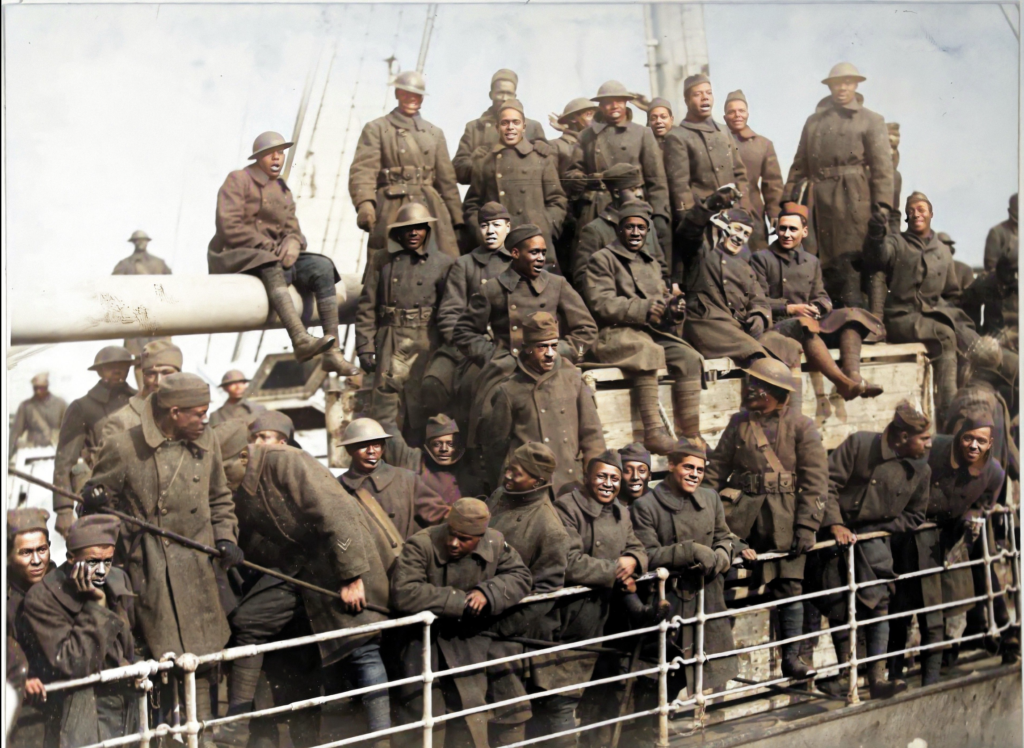
Members of the 369th Infantry Regiment, also known as the “Harlem Hellfighters,” return from France in March 1919, proudly wearing their Croix de Guerre medals awarded by the French government for valor in combat. (Photo courtesy of: National Archives, Local Identifier 165-WW-127-3.)
Recognition and Decorations
- The regiment received a unit Croix de Guerre from France, with over 170 individual soldiers also earning Croix de Guerre or Legion of Honor awards.
- Soldiers Henry Johnson and Needham Roberts were the first Americans ever to receive the Croix de Guerre, after repelling a German raid under severe injury—Johnson was later recognized with a Medal of Honor posthumously.
- The regiment returned home in early 1919 to a parade down Fifth Avenue, a sight heralded by more than a million spectators, underscoring their national hero status despite prevailing racial injustices.
Congressional Gold Medal: A Long-Overdue Honor
- More than a century after their service, Congress passed the Harlem Hellfighters Congressional Gold Medal Act, which was signed into law on August 25, 2021 by President Joe Biden.
- The legislation ensures replicas of the Congressional Gold Medal are awarded to families of the 369th members, honoring their service and sacrifice.
Significance and Continuing Legacy
- The Hellfighters’ wartime achievements and homecoming parade became enduring symbols in the struggle for African American equality and civil rights
- Their service helped reshape perceptions of black soldiers and set a precedent eventually paving the way toward desegregating the U.S. military.
- Their story is preserved and accessible through educational collections like the National Archives’ “Photographs of the 369th Infantry”, which offer tangible windows into their experience.
Source: Congresswoman Joyce Beatty / Congress.gov / National Archives /National Museum of African American History / New York State Military Museum / Military.com


